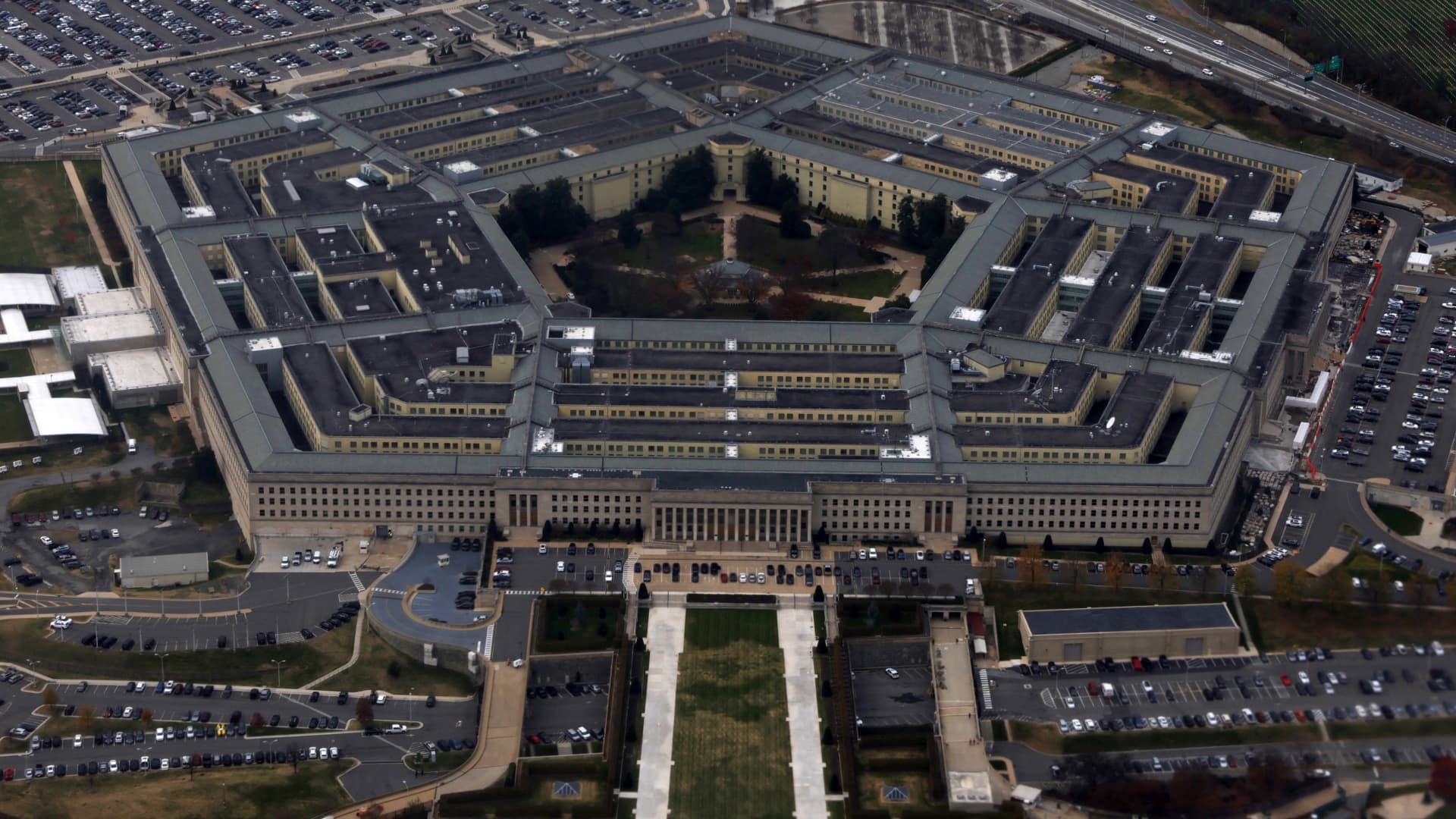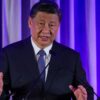Technology
The Pentagon’s struggle within the U.S. for keep watch over of a fresh Cyber Drive
A contemporary Chinese language cyber-espionage assault inside the nation’s major telecom networks that can have reached as prime because the communications of President-elect Donald Trump and Vice President-elect J.D. Vance was once designated this time through one U.S. senator as “far and away the most serious telecom hack in our history.”
The U.S. has but to determine the whole scope of what China achieved, and possibly sooner its spies are nonetheless within U.S. communique networks.
“The barn door is still wide open, or mostly open,” Senator Mark Warner of Virginia and chairman of the Senate Insigt Committee told the New York Times on Thursday.
The revelations spotlight the emerging cyberthreats fasten to geopolitics and countryside actor opponents of the U.S., however within the federal executive, there’s confrontation on find out how to combat again, with some advocates calling for the inauguration of an isolated federal U.S. Cyber Drive. In September, the Area of Protection formally appealed to Congress, urging lawmakers to disown that means.
Amongst probably the most chief voices advocating for the fresh department is the Underpinning for Protection of Democracies, a countrywide safety suppose tank, however the problem extends some distance past any unmarried crew. In June, protection committees in each the Area and Senate approved measures calling for isolated critiques of the feasibility to assemble a free cyber department, as a part of the once a year protection coverage deliberations.
Drawing on insights from greater than 75 active-duty and retired army officials skilled in cyber operations, the FDD’s 40-page report highlights what it says are power structural problems throughout the U.S. Cyber Command (CYBERCOM), together with fragmented recruitment and coaching practices around the Military, Military, Wind Drive, and Marines.
“America’s cyber force generation system is clearly broken,” the FDD wrote, mentioning comments made in 2023 through then-leader of U.S. Cyber Command, Military Normal Paul Nakasone, who took over the function in 2018 and described flow U.S. army cyber group as unsustainable: “All options are on the table, except the status quo,” Nakasone had stated.
Fear with Congress and a converting White Area
The FDD research issues to “deep concerns” that experience existed inside Congress for a decade — amongst participants of each events — in regards to the army having the ability to group of workers as much as effectively secure our on-line world. Ability shortages, inconsistent coaching, and misaligned missions, are undermining CYBERCOM’s capability to reply successfully to advanced cyber warnings, it says. Making a devoted department, proponents argue, would higher place the U.S. in our on-line world. The Pentagon, on the other hand, warns that this type of journey may disrupt coordination, build up fragmentation, and in the long run weaken U.S. cyber readiness.
Because the Pentagon doubles indisposed on its resistance to established order of a free U.S. Cyber Drive, the incoming Trump management may play games an important function in shaping whether or not The usa leans towards a centralized cyber technique or reinforces the flow built-in framework that emphasizes cross-branch coordination.
Recognized for his assertive nationwide security features, Trump’s 2018 National Cyber Strategy emphasised embedding cyber features throughout all components of nationwide energy and that specialize in cross-departmental coordination and public-private partnerships in lieu than making a standalone cyber entity. At that pace, the Trump’s management emphasised centralizing civilian cybersecurity efforts beneath the Area of Native land Safety generation tasking the Area of Protection with addressing extra advanced, defense-specific cyber warnings. Trump’s select for Secretary of Native land Safety, South Dakota Governor Kristi Noem, has talked up her, and her state’s, focus on cybersecurity.
Former Trump officials believe {that a} 2nd Trump management will jerk an competitive stance on nationwide safety, fill gaps on the Power Area, and release regulatory burdens at the inner most sector. They look forward to a more potent center of attention on offensive cyber operations, adapted warning vulnerability coverage, and bigger coordination between atmosphere and native governments. Adjustments will likely be coming on the govern of the Cybersecurity and Infrastructure Safety Company, which was once created throughout Trump’s first time period and the place flow director Jen Easterly has introduced she will leave once Trump is inaugurated.
Cyber Command 2.0 and the U.S. army
John Cohen, government director of the Program for Countering Hybrid Warnings on the Middle for Web Safety, is amongst those that proportion the Pentagon’s issues. “We can no longer afford to operate in stovepipes,” Cohen stated, blackmail {that a} free cyber department may irritate present silos and extra isolate cyber operations from alternative crucial army efforts.
Cohen emphasised that adversaries like China and Russia make use of cyber techniques as a part of broader, built-in methods that come with financial, bodily, and mental elements. To counter such warnings, he argued, the U.S. wishes a cohesive means throughout its army branches. “Confronting that requires our military to adapt to the changing battlespace in a consistent way,” he stated.
In 2018, CYBERCOM qualified its Cyber Venture Drive groups as totally staffed, however issues had been expressed through the FDD and others that group of workers have been shifted between groups to fulfill staffing targets — a journey they are saying masked deeper structural issues. Nakasone has called for a CYBERCOM 2.0, announcing in feedback early this hour “How do we think about training differently? How do we think about personnel differently?” and including {that a} primary factor has been the way to army staffing throughout the command.
Austin Berglas, a former head of the FBI’s cyber program in Unutilized York who labored on consolidation efforts within the Bureau, believes a free cyber drive may make stronger U.S. features through centralizing sources and priorities. “When I first took over the [FBI] cyber program … the assets were scattered,” stated Berglas, who’s now the worldwide head {of professional} services and products at provide chain cyber protection corporate BlueVoyant. Centralization introduced center of attention and potency to the FBI’s cyber efforts, he stated, and it’s a fashion he believes would get advantages the army’s cyber efforts as smartly. “Cyber is a different beast,” Berglas stated, emphasizing the will for specialised coaching, development, and useful resource allocation that isn’t diluted through competing army priorities.
Berglas additionally pointed to the continued “cyber arms race” with adversaries like China, Russia, Iran, and North Korea. He warned that and not using a devoted drive, the U.S. dangers falling at the back of as those countries make bigger their offensive cyber features and exploit vulnerabilities throughout crucial infrastructure.
Nakasone stated in his feedback previous this hour a bundle has modified that since 2013 when U.S. Cyber Command started development out its Cyber Venture Drive to struggle problems like counterterrorism and fiscal cybercrime coming from Iran. “Completely different world in which we live in today,” he stated, mentioning the warnings from China and Russia.
Brandon Wales, a former government director of the CISA, stated there’s the want to bolster U.S. cyber features, however he cautions towards primary structural adjustments throughout a length of heightened world warnings.
“A reorganization of this scale is obviously going to be disruptive and will take time,” stated Wales, who’s now vp of cybersecurity technique at SentinelOne.
He cited China’s arrangements for a possible battle over Taiwan as a reason why the U.S. army must preserve readiness. Instead than making a fresh department, Wales helps tasks like Cyber Command 2.0 and its struggle to make stronger coordination and features throughout the present construction. “Large reorganizations should always be the last resort because of how disruptive they are,” he stated.
Wales says it’s notable to assure any structural adjustments don’t undermine integration throughout army branches and acknowledge that coordination throughout present branches is important to addressing the advanced, multidomain warnings posed through U.S. adversaries. “You should not always assume that centralization solves all of your problems,” he stated. “We need to enhance our capabilities, both defensively and offensively. This isn’t about one solution; it’s about ensuring we can quickly see, stop, disrupt, and prevent threats from hitting our critical infrastructure and systems,” he added.





